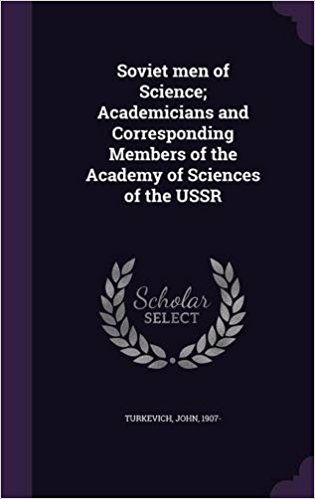Background
Turkevich was born on January 20, 1907 in Minneapolis, Minnesota, United States; the son of Metropolitan Leonty and Anna Olimph Turkevich.










(This work has been selected by scholars as being cultural...)
This work has been selected by scholars as being culturally important, and is part of the knowledge base of civilization as we know it. This work was reproduced from the original artifact, and remains as true to the original work as possible. Therefore, you will see the original copyright references, library stamps (as most of these works have been housed in our most important libraries around the world), and other notations in the work. This work is in the public domain in the United States of America, and possibly other nations. Within the United States, you may freely copy and distribute this work, as no entity (individual or corporate) has a copyright on the body of the work. As a reproduction of a historical artifact, this work may contain missing or blurred pages, poor pictures, errant marks, etc. Scholars believe, and we concur, that this work is important enough to be preserved, reproduced, and made generally available to the public. We appreciate your support of the preservation process, and thank you for being an important part of keeping this knowledge alive and relevant.
http://www.amazon.com/gp/product/1341869725/?tag=2022091-20
2015
Turkevich was born on January 20, 1907 in Minneapolis, Minnesota, United States; the son of Metropolitan Leonty and Anna Olimph Turkevich.
Turkevich received a Bachelor of Science degree in 1928 and a Master of Science degree in 1930 from Dartmouth College. Four years later, he graduated from Princeton University with a Doctor of Philosophy degree.
Turkevich began his career as an instructor of chemistry at Dartmouth College and held the position from 1928 to 1935. A year later, he began working as a professor of chemistry at Princeton University in New Jersey, United States and held the position for 39 years.
Turkevich was a lecturer of Russian history at Princeton University from 1940 to 1942.
In 1963, he decided to take a position of a lecturer at Woodrow Wilson School Government of Princeton University, where Turkevich worked until 1966. He held the position of Eugene Higgins professor of chemistry at Princeton University in 1955-1975. In 1975, John was made a professor emeritus.
In 1960, Turkevich became the first science attache named to the United States Embassy in Moscow and four years later, he was the head of a delegation to the Soviet Union to establish scientific exchanges with the United States.
Turkevich was a visiting professor at Tokyo Institute Technology in 1974 and at Lausanne University in 1979.
Turkevich is known for his works on chemical catalysts. He discovered anticancer drug sis-platinum. Also John Turkevich found in the 1940's that platinum could play a larger role in the petroleum refining process and his ideas were incorporated in the 1950's into several commercial catalytic processes.
He was a founder of the International Catalysis Society and president of the National Institute for Catalysis.
(This work has been selected by scholars as being cultural...)
2015Turkevich was a member of International Catalysis Society, American Association for the Advancement of Science and Council on Foreign Relations.
John Turkevich married Ludmilla Buketoff Turkevich in July, 1934. They have 2 daughters and four grandchildren.
She died in 1995.
